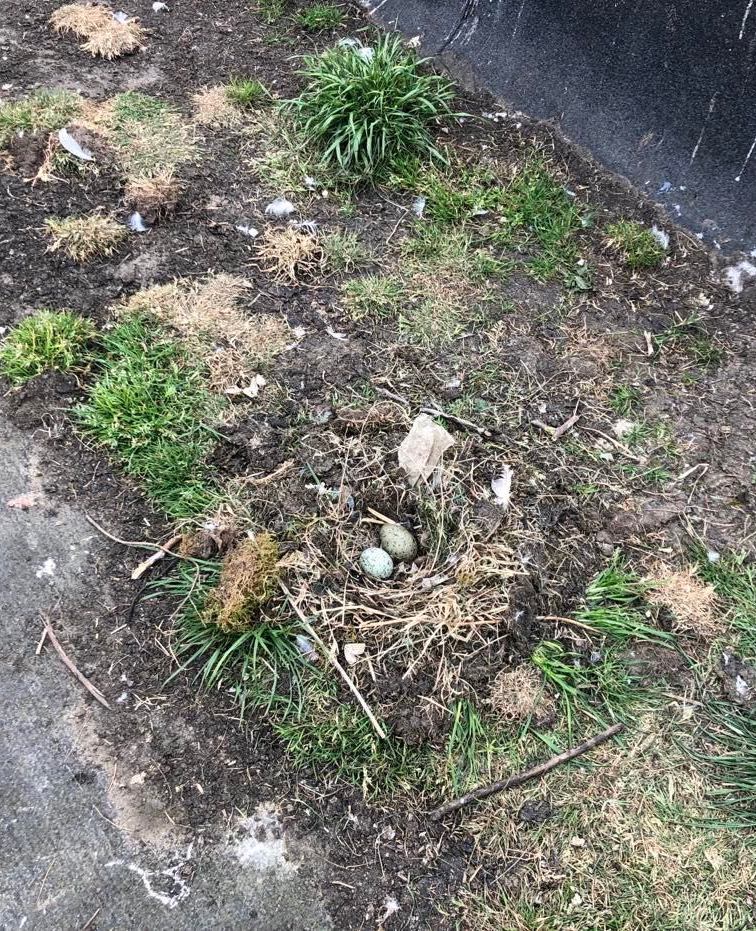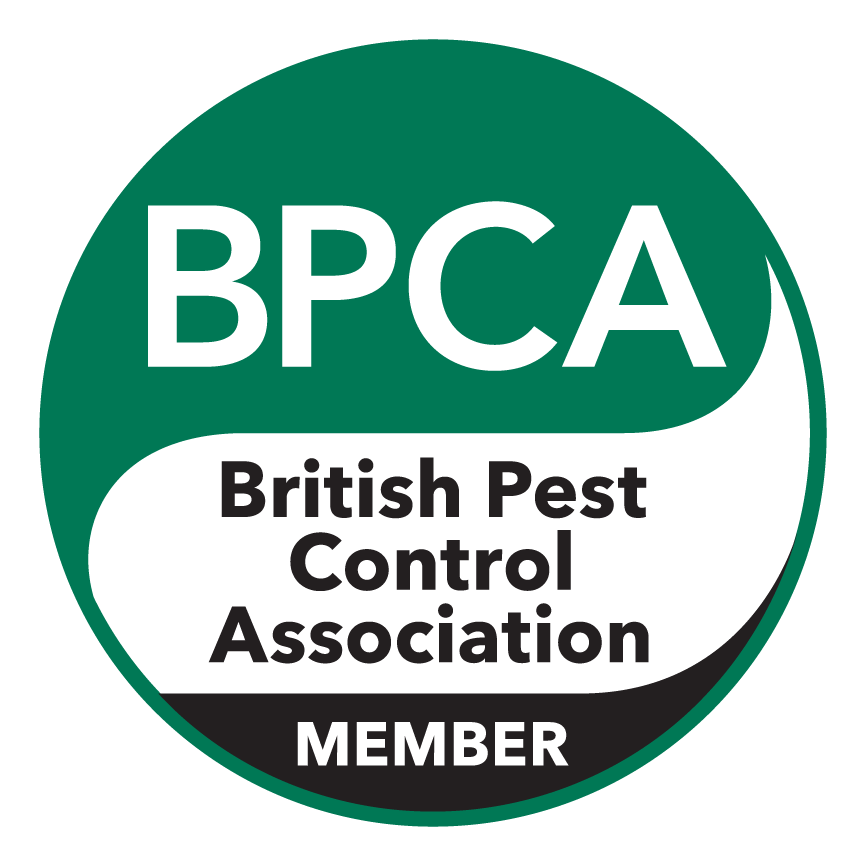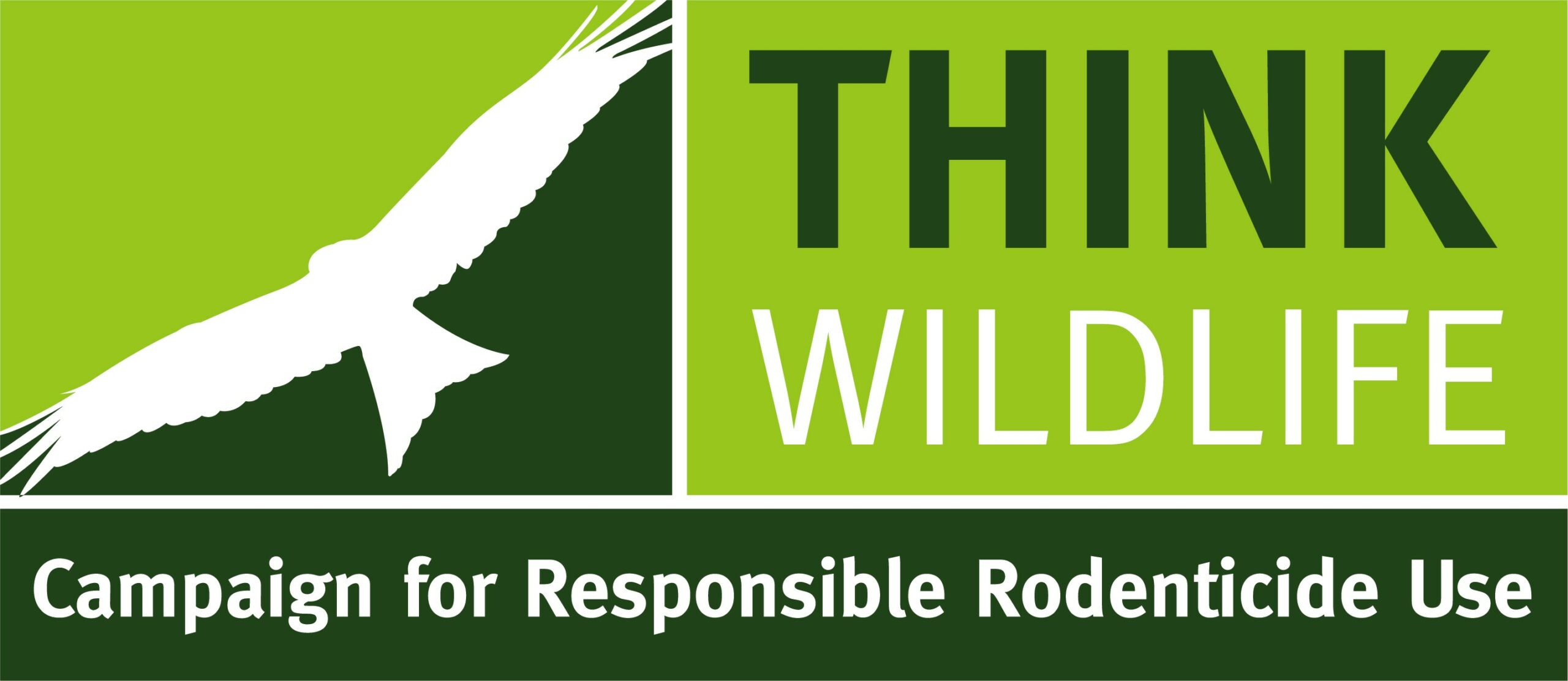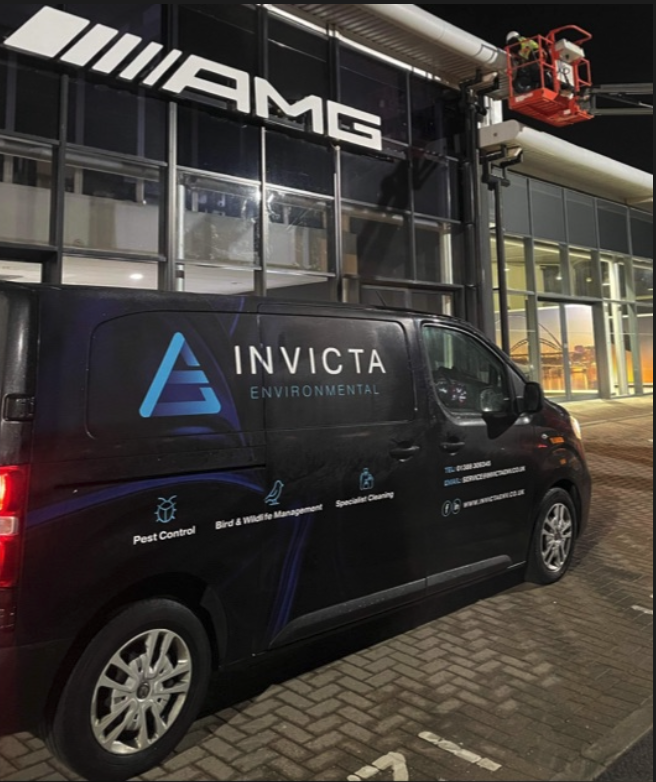Why Choose Invicta Environmental For Seagull Control In Durham & The North East?
- BPCA qualified technicians
- Root cause analysis of your gull problem
- Innovative seagull control solutions
- Discreet operatives whilst on site
- Fast response to gull control call-outs
- A range of humane bird control options to suit every organisation
- Local teams in Durham, Newcastle & The North East with a national reach

Seagull Species Found In The UK
| Species | Length | Wings | Beak | Legs |
|---|---|---|---|---|
| Greater Black-backed Gull (Larus marinus) | 64-78cm | Black with white tips | Yellow with red spot | Pink |
| Kittiwake (Rissa tridactyla) | Approx 40cm | Grey Back and Wings | Yellow | Black |
| Common Gull (Larus canus) | 40-44cm | Medium grey | Green yellow | Green yellow |
| Herring Gull (Larus argentatus) | 55-64cm | Silver grey, black tips plus white spots | Yellow with red spot | Pink |
| Lesser Black-backed Gull (Larus fuscus) | 52-64cm | Dark grey with black tips | Yellow with red spot | Yellow |
The term seagulls refers to multiple species of gulls, which are predatory birds with a varied diet. Within the UK we have five main species of commonly occurring breeding gulls that can in certain circumstances become problematic when they interact with humans.
Lesser Black Backed and Herring Gulls are common gulls within the North East and their presence often leads to complaints during the gull breeding season, which runs from roughly April to September each year when they build their nests on the roofs of houses and businesses within the area rather than on coastal cliffs. The Kittiwake as an example can be seen nesting across the Tyne Bridge, this is this species most inland colony and is really a sight to see and hear in the breeding season.
It’s important to note that all gulls are protected by law, and nest removal or damage are both illegal. Over the years, there have been changes to licensing that makes any removal of gull nests or eggs illegal. These amendments were introduced following the removal of a number of species from the general licence provision which allowed this activity. All licensing is ran by Natural England in the North East.
The nuisance caused by gulls lasts mainly from April to September after which the young gulls fly back out to sea, though some choose to remain within our towns all year round. Whatever time of year, if you’re dealing with a gull problem, call 01388 309345 to book your seagull control appointment.

Invicta’s Seagull Control Process
Invicta will attend your site to investigate what species of bird is causing you issues. We will listen and understand your goals when it comes to bird control to ensure we give you the best possible suggestions.
Once we understand the scale of your seagull problem, we can provide you with recommendations for the best way to get rid of seagulls and keep them away.
If you’re happy with our plan of action, we will attend your property to install your bird proofing solutions across your site.
After every seagull control visit, our team will provide you with a full report on the work we’ve carried out and any further recommendations we have for preventative measures that could keep gulls away.
Dangers Of Seagulls
Seagulls might not seem hazardous, but like pigeons and other birds they can cause serious damage to your commercial property, farm or public service site. During nesting season, seagulls can cause a noise disturbance and display aggressive behaviour, which can be distressing to staff and customers.
While they are usually found outside your property, seagulls can still cause a health hazard. Seagull droppings, also known as guano, carry diseases including salmonellosis, cryptococcosis, psittacosis, and E. coli. Guano can also become a trip hazard, especially if it reaches ground level. Gulls can also spread parasites, including bird mites.
Like most pests, seagulls are attracted to a reliable food source. Gulls are omnivorous and have a varied diet, and will eat almost anything they can find, including litter and food waste. With Invicta Environmental’s seagull control services, you can find a solution to scare seagulls away and prevent from the returning. Contact us today to find out more.


Meet the professional team
Humane Solutions To Deter Gulls
All wild birds, including gulls, are protected under the Wildlife and Countryside Act 1981. Under the act, it is an offence to destroy gull nests which are in use or being built, take or destroy gull eggs, or take or kill and adult or chick.
As such, once you have nesting seagulls on your property, you will find it hard to remove them safely and legally. Seagulls can be ferocious when disturbed and quickly become a nuisance, but there are several solutions to deter gulls and provide a physical barrier to stop them gaining entry to your site.
- Bird Netting: Bird netting is a common solution for keeping nuisance gulls out of an area. With the right bird netting, you can provide a barrier that stops the birds from getting into an area and covers all entry points.
- Bird Spikes: Another physical solution to a gull problem is bird spikes, which stop gulls from perching or resting on ledges and roofs. They look ferocious, but the spikes are safe and simply make resting on ledges uncomfortable for birds.
- Post And Wire: Birds have good memories and will return to areas that are safe and stable. With bird post and wire systems, pest controllers can create an uncomfortable perch for gulls, leading them to look elsewhere for somewhere to rest.
- Cutting-Edge Deterrents: There are many bird control solutions that take into account seagull behaviour and aim to change it to deter gulls and other pest birds. These include Avishock, Bird-Free Gel, Flock-Off and Laser Dispersal Systems. When used correctly by experienced bird control providers like us, these solutions can be highly effective.
- Falconry: For larger sites, falconry is a natural solution. Since seagulls are territorial, if they think that larger birds of prey are active in their area, they will relocate. When carried out regularly, falconry can be a highly effective form of gull control.
Invicta Environmental offers all the above methods of seagull pest control, so we can help you to stop seagulls before they build nests. To find the right bird control method for your business and reduce your risk of gulls perching, landing on or building nests on your property, call 01388 309345.
Get in Touch
A member of our team will contact you within 24 hours.










